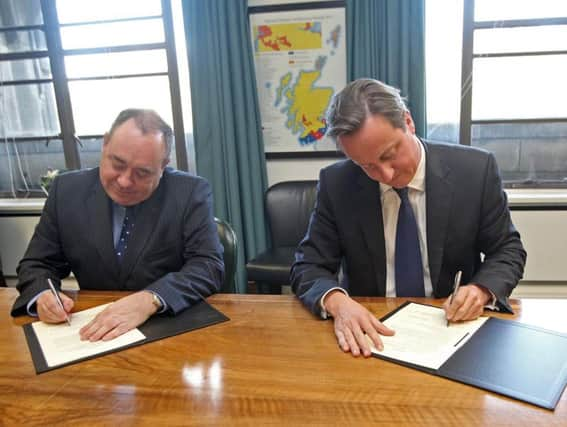Scottish Independence Referendum: What Happens Next?


The Section 30 order
The critical barrier to a referendum being staged is the transfer of power from Westminster in the form of a Section 30 order. Responsibility for the constitution lies with Westminster. When the last referendum was staged in 2014 Alex Salmond and David Cameron signed the Edinburgh Agreement, a deal which saw the the UK Government agree to such a vote. But Theresa May has ruled out a similar agreement in response to requests from Nicola Sturgeon. It would seem that all candidates for the Tory leadership will adopt a similar approach to their predecessor, resulting in cross-border stand-off. The SNP Government says refusal to grant a section 30 order is "unsustainable", But Scottish ministers have ruled out a "Catalan-style" wildcat referendum, although experts say the Scottish Government may have the legal power to stage a referendum itself - but not to implement independence as a result.
The Bill
The Bill is likely to be passed at Holyrood in the next five or six months by MSPs. It is likely to face opposition from pro-union parties who have already branded it a "waste of Parliamentary space" but it is only an enabling Bill which cover the conduct of all referendums in Scotland. It makes no mention of independence as this could render it outwith the legislative competence of the Scottish Parliament. Instead, it sets out the rules for voting and sets out how the poll should be conducted. It also covers the campaign rules to regulate campaigning at the referendum such as spending limits. Like the last referendum Bill it would see 16-year-olds handed the vote, along with EU citizens on the local government electoral register.
Brexit
Advertisement
Hide AdAdvertisement
Hide AdThe prospect of a second referendum on Brexit being staged is still not beyond the realms of possibility, although the chances have diminished with a hardline Brexiteer likely to replace Theresa May as Prime Minister. The Parliamentary arithmetic in the Commons could nonetheless still bring this about and it would likely see the SNP swing all its formidable campaigning efforts behind the Remain campaign. Even if Brexit doesn't happen, though, Nicola Sturgeon has made it clear that she wants to hold a second referendum on independence.
The campaign
The SNP has already fired the starting gun on the indyref2 campaign. The party has recently backed a change in policy to adopt a separate Scottish currency following a Yes vote - but only after a "transition" period when the UK pound would still be used. A new pro-independence “civic” campaign body, Voices for Scotland, was launched in Edinburgh last month aimed at winning over undecided Scots to vote Yes, chaired by former Nationalist MSP Dave Thompson. The SNP has also set out plans to post its new prospectus for independence to every home in Scotland to win over wavering voters. On the pro-UK side, Scotland in Union has been established to campaign for the Remain side and is headed up by former Labour MP Pamela Nash.
Citizens Assembly
An Irish-style Citizens Assembly is to established by the Scottish Government with the aim of seeking to finding a more collegiate approach to dealing with major, divisive issues faced by the country. The initiative helped overcome taboos in the Irish republic over gay marriage and abortion and Nicola Sturgeon believes it could play a key role in the Scottish independence debate in providing Scots with the information they need to make "informed choices" about the future of the country. These will being together a representative cross section of Scotland with an independent chair,
Holyrood election
If no solution is found to the impasse over a Section 30 order, it is expected that the row over the right of Holyrood to stage an independence referendum will become the defining issue of the Scottish Parliament elections in 2021. Nicola Sturgeon could in effect make the vote a de facto "referendum on a referendum." If the pro-independence parties - the SNP and Scottish Greens - secure another as they achieved in the previous two Holyrood elections, the argument is that the UK Government would be unable to resist calls for another vote. By that point, the situation with Brexit is also likely to be clearer. The SNP is riding high in the polls at the moment and swept to victory in the European election last week. However, the 37% secured by Nicola Sturgeon's party in last week's vote is down on its 46.5% constituency showing at the last Holyrood election, although the Greens' 9% is well up on the 6.6% is secured on the regional list.